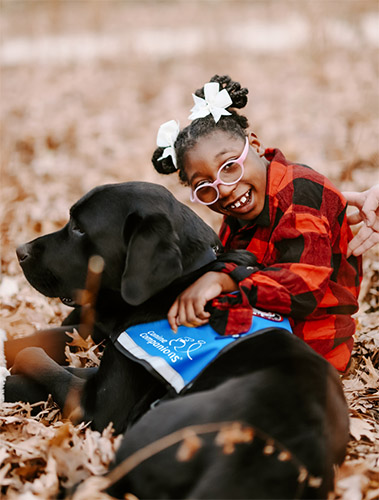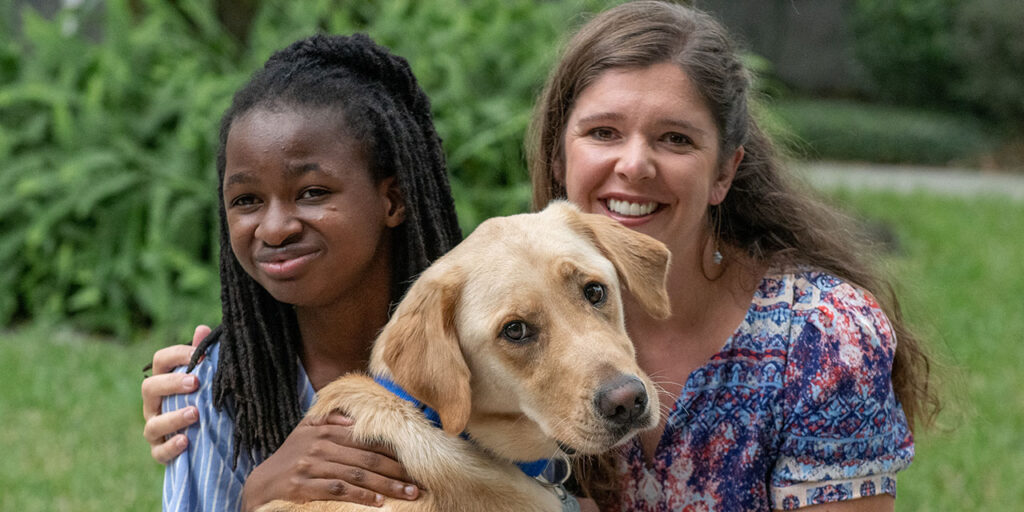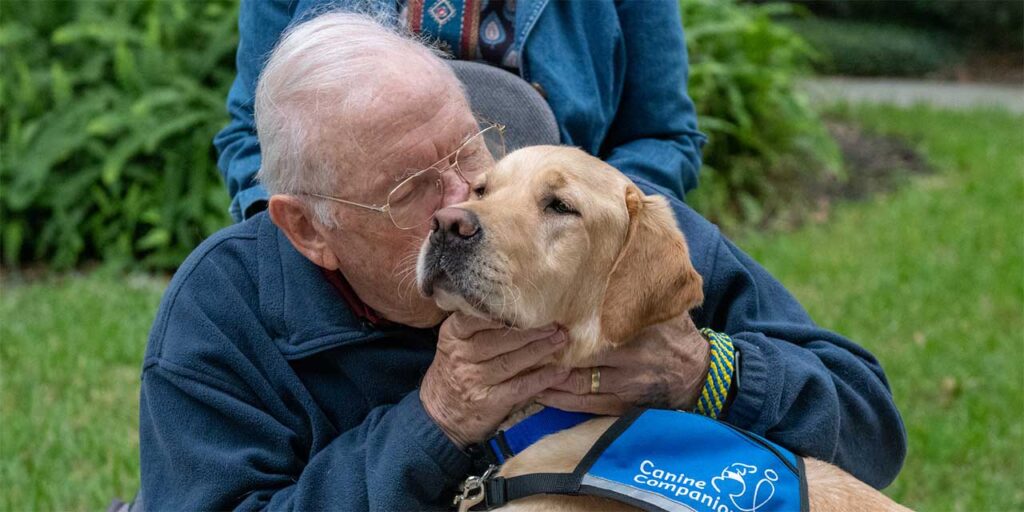Home » Service Dogs » Our Dogs » Skilled Companions
Skilled Companions
Learn more about what a skilled companion dog can do.
People with disabilities might have trouble reaching a light switch, picking up a dropped pencil or opening a door. Imagine having a dog that could do all of that and more.
Our skilled companion dogs are trained to work with an adult or child with a disability, under the guidance of a facilitator. A facilitator is typically a parent, spouse or caregiver who lives in the same household as the recipient and cares for the service dog. They are also responsible for assisting in the development of a strong bond between the recipient and the skilled companion dog.
Disabilities served include, but are not limited to, cerebral palsy, muscular dystrophy, autism spectrum disorder, spina bifida and spinal muscular atrophy.
A Canine Companions skilled companion dog is bred to be reliable, responsive and affectionate, as well as to utilize its trained skills and tasks to help mitigate the recipient’s disability. A Canine Companions skilled companion dog can:
- Perform service dog commands including picking up items, opening doors and drawers, and providing calming pressure across the recipient’s lap or body
- Assist with developing independent living skills
- Be integrated into structured therapies and to facilitate social interactions
- Make the recipient’s physical life easier, boost their confidence, as well as their feelings of self-sufficiency and responsibility

Canine Companions dogs are responsive to their handler, not responsible for their handler. A Canine Companions dog cannot take responsibility for the safety of the recipient and does not have the ability to identify a situation that is safe versus a situation that is dangerous. Canine Companions dogs are only able to perform under the direct supervision of an adult and cannot go to school alone with a child.
Finally, please note that under the Americans with Disabilities Act (ADA), service dogs must be trained in specific tasks that mitigate the symptoms of an individual with a disability. Therefore, Canine Companions does not place skilled companion dogs for the sole purpose of emotional support, companionship, or to act as a calming presence or social bridge, although many graduates enjoy these benefits in addition to the dog’s trained commands.


In order to be eligible for a skilled companion dog, applicants must:
Recipient must:
- Be at least five years of age
- Have a physical or developmental disability
- Have a need for the task(s) that a Canine Companions dog could provide
- Live with facilitator
Facilitator must:
- Be 18 years of age or older
- Be able to demonstrate the ability to safely and effectively control, manage and care for a dog
- Have adequate vision to observe, intervene and manage a dog’s behavior (generally equivalent to DMV license requirements)
- Desire specific, physical tasks Canine Companions dogs are trained to perform to mitigate the recipient’s disability
- Be willing to attend a two-week Team Training class at a Canine Companions training center
- Be willing to participate in on-going Canine Companions training and graduate support program
Canine Companions skilled companion dogs and follow-up services are free of charge.
The process to receive a Canine Companions service dog includes multiple steps. Click the button below to find out if a service dog is right for you, and start the process to receive more information.
Please note: Canine Companions does not train or place dogs for the following; to do guide work for the blind, to do seizure or diabetic alert/response, to anticipate or detect medical symptoms, for the primary benefit of emotional comfort or social support, to recognize and/or manage undesirable human behavior, to provide supervision, navigation, or safety from environmental hazards, to respond aggressively, to provide personal protection, to assist with the management of mental illness as a primary condition.
